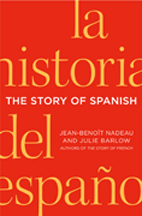 Tomorrow, Americans everywhere will be celebrating Independence Day. It’s the perfect occasion to take a moment and remember that this “young” republic, the world’s oldest, has never been a pure product of the Anglo-Saxon. Let’s not forget that the Spanish, Mexicans, French and French Canadians all played huge roles in the republic’s history.
Tomorrow, Americans everywhere will be celebrating Independence Day. It’s the perfect occasion to take a moment and remember that this “young” republic, the world’s oldest, has never been a pure product of the Anglo-Saxon. Let’s not forget that the Spanish, Mexicans, French and French Canadians all played huge roles in the republic’s history.
Let’s begin with the Spanish. Out of all the European languages, the oldest documents, contracts and judgements about the United-States were written in Spanish, the language of Cervantes. The city of St. Augustine, founded in 1565 in Florida, preceded Québec, Jamestown and Sante Fe by over 40 years. Furthermore, the Castilian King, Alfonso X, was among one of the major American legislators. His law code, Las siete partidas, is the fundamental of the American Southwest.
We forget that for 350 years, the entire American Southwest belonged to Spain and then to Mexico, before being annexed to the United States between 1847 and 1848. By this sudden entry of the States in the Hispanic world, 100, 000 Mexicans became Americans. Fifty years later, they were already 500, 000.
In fact, subsequent and rapid colonization of these semi-arid areas, particularly California, could not have been possible without the prior existence of a thriving farming industry that drew on the 350-year old Mexican tradition of rancheros.
In a nutshell, one of the most authentic and flourishing staples of the American culture is authentically Mexican. Everything has been either translated or adapted, from mustang (mesteño) to wrangler (caballerango), to stampede (estampida) and buckaroo (vaquero). And then there’s Tex-Mex cuisine, which is in fact authentically American since there are Mexicans in Texas.
As for the French, there’s the very well-known La Fayette who supported the “insurgents,” many cities bear his name today because of his contribution to the American Revolution.
French Huguenots (exiled Protestants) also played an important part in the United States’ history. There were many– starting with Pieter Minuit, founder of the famous Dutch colony of Manhattan, where the Huguenots were long influential. Other famous Huguenots include independence hero Paul Revere, whose family name was once Revoire, and the legendary Davy Crockett, whose ancestor, Monsieur de Croquetagne was once a captain of the guard for Louis XIV. Not to mention former U.S. President Franklin Delano Rossesevelt, a Delanoë by his mother.
French Canadians also played a crucial part in this great American myth of the conquest of the West. More than five thousand place names are French or derived from French, like for example the Ozark Mountains, a deformation of d’Aux Arcs, Iowa (Ayouhais) and Ohio (aux Ayaux)– the spelling of which is a transliteration of the French pronunciation of the time.
Among the most famous personalities, there’s François-Xavier Aubry from Longueuil, who opened the Santa Fe trailed and guided the pioneers of the Union Pacific through the Rockies. Aubry would find an untimely death in 1850, murdered in the saloon of the Mercure brothers, themselves from Québec.
For more information on the history of the French language:

For more information on the history of the Spanish language:











